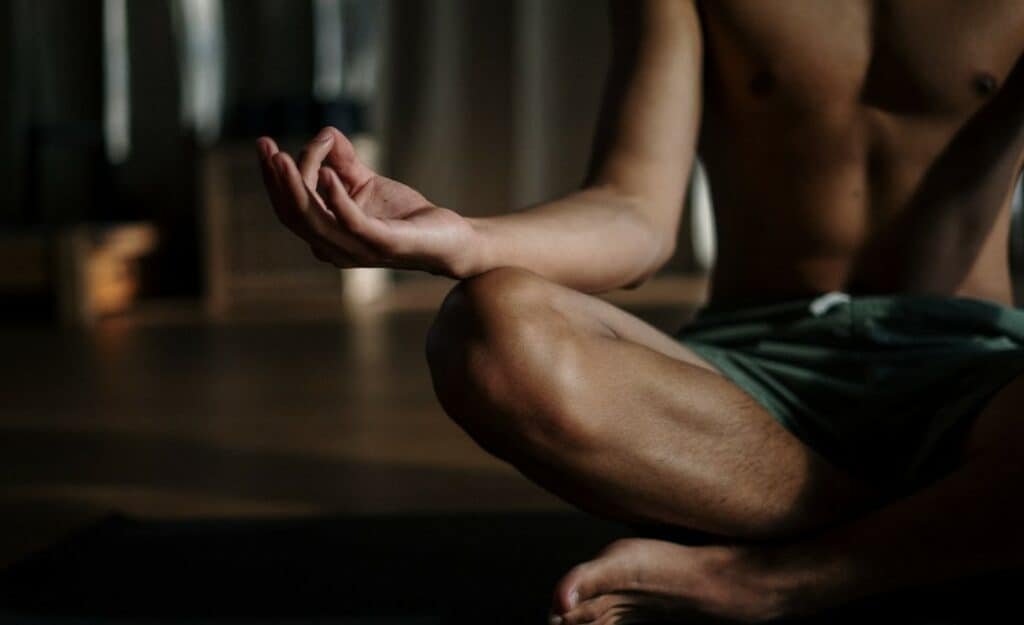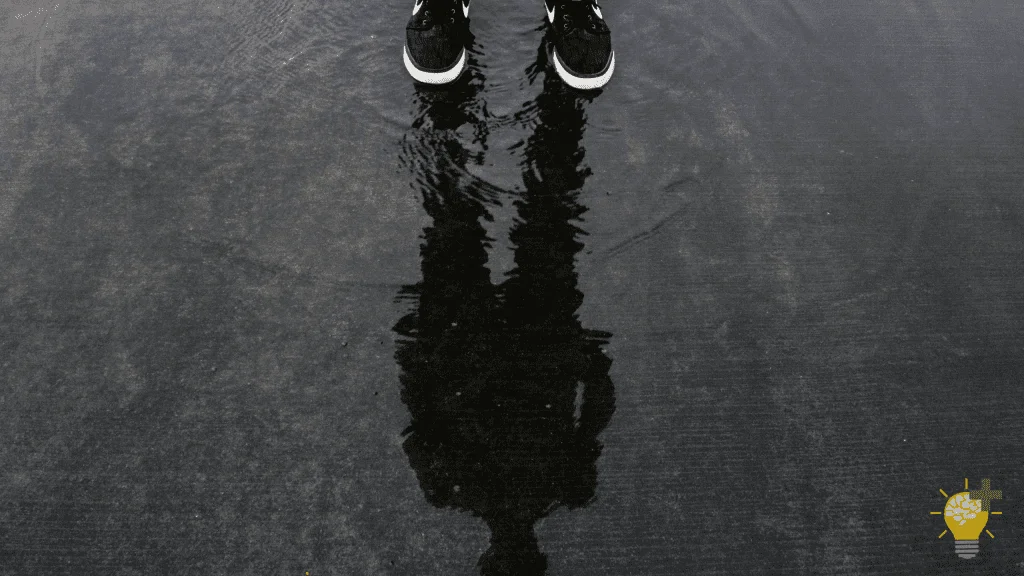You’re probably reading this because you’ve always felt bad when you take time out to relax. Your inner critic guilt-trips you for not being productive, even when there’s really nothing for you to do.
I’ll cover the possible reasons people feel guilty for switching off the “activity” mode, but first, here’s an interesting fact you probably don’t know.
Modern humans (mostly men) would rather get an electric shock than being left alone to do nothing but think!
This may come as a surprise, but that’s the appalling conclusion of a recent study by psychologists from the University of Virginia in Charlottesville and published in the Science Journal.
This article is for you if you’ve ever asked, “Why do I feel guilty for doing nothing?” Most people feel bad for being “idle” (resting, relaxing, or chilling out) because we’ve somehow convinced ourselves that doing nothing is a huge waste of valuable time.
Here’s the problem with this type of thinking.
It makes you constantly seek out activities to keep busy. If, heaven forbid, you catch yourself not doing an activity, you thoroughly berate yourself for daring to relax because you believe it is not okay to do nothing.
And because feelings of guilt aren’t particularly pleasant, many of us force ourselves to do mundane things, preferring to kill time doing unhelpful things instead of staying “idle.”
In this post, I’ll share practical tips to help you stop feeling guilty for doing nothing. But first, here’s an in-depth look at why your mind blames you for relaxing.
5 Common Reasons You Feel Guilty for Doing Nothing

Have you ever wondered why people want to work their heads off? Usually, it’s so they can have the means to live comfortably. You want to afford the best things in life, relax, have fun with family and friends, and generally live an easy life.
But guess what?
We do the exact opposite, refusing to cut ourselves some slack, even when a restful life is essentially why we do all the hard work. And there’s the rub!
Here are 5 possible answers to the question why do I feel guilty for doing nothing?
1. You Struggle With High-Functioning Anxiety
If resting makes you feel somewhat lazy, you might be overly worried about your productivity. This is common with people who struggle with high-functioning anxiety ― a situation where you find it difficult to relax for fear that your world will come to a standstill if you dare to take a break from work.
If this is you, staying busy is probably your escape mechanism. You hide behind work or other activities, so you don’t have to deal with anxious thoughts that may creep up on you when relaxing or idle.
2. Staying Organized Is Not Your Strong Suit
Feeling lazy during relaxation isn’t limited to high performers alone. Relaxing can feel awfully boring if you frequently switch between tasks because you have trouble staying organized.
That’s because doing various activities (even if they are disorganized, ineffective, and inefficient) creates a sense of accomplishment, while relaxing intensifies the feeling that you’re wasting time.
Disorganized people need to jump back and forth between tasks to reduce the feeling of guilt for doing nothing and convince their minds that they have earned the right to relax.
3. Our Culture Idealizes Hard Work
You probably grew up seeing your parents work their socks off, and society often frowns at anyone lazing around.
Hard work is an integral part of our culture (at least in most parts of the world), so we feel more comfortable when we are doing something, especially if it is productive.
With hard work ingrained in our culture, it is not surprising to feel guilty for doing nothing.
To be clear, though, there is nothing wrong with hard work. However, many people find it oddly uncomfortable to relax, considering our cultures promote hard work.
4. Productivity Is a Big Part of Your Identity
Work is a huge part of our modern lives; many of us work more than one job to survive and thrive. Besides providing for our basic needs, productivity increases our sense of usefulness and self-esteem.
In other words, it is common for people to feel “lazy” whenever they take time off from doing something they consider productive.
5. The Benefits of Relaxing Are Not Easily Seen
It’s a lot easier to feel accomplished when you check items off a to-do list. Conversely, the benefits of resting or relaxing are not very obvious, at least not immediately.
Considering most people prefer immediate results, relaxing or resting might not seem to offer tangible results.
But that’s far from being accurate, as rest and relaxation can offer many benefits, which I’ll briefly cover in the next section.
Benefits of Doing Nothing

Unplugging in a busy world can be difficult, but not when you know the benefits. Doing nothing might seem like a huge waste of time, but it can be good on several levels.
- Relaxing improves productivity: It might come as a surprise, but doing nothing can significantly improve your productivity. That’s because your brain functions better when it is fully rested. As you probably already know, the brain can’t rest and recharge when you’re constantly working. If anything, the brain grows wearier and less functional without adequate rest and relaxation.
- Taking time off reduces stress: Our immune system takes a serious hit when exposed to chronic stress. This increases our chances of falling ill frequently. Although it is difficult to completely avoid stress-inducing activities, especially in the modern world, you can reduce your stress level by taking time off to practice gratitude, meditation, and deep breathing.
- Heals the body: Our bodies aren’t designed for non-stop productivity. Short periods of rest from physical exertion, as well as mental and emotional stress, enable our bodies to repair and recover.
- “Idle time” can improve your sense of self-worth: Taking time to relax enhances your decision-making ability because your mind is well-rested. This can increase self-esteem as you feel great about yourself for consistently making good choices and sound decisions.
How to Do Nothing and Not Feel Guilty

So far, I’ve answered the question, “why do I feel guilty for doing nothing?” and shown you the benefits of relaxing. Now, let’s see how to overcome the guilty feeling that often comes with doing nothing.
Consider the following effective tips to help you feel great about doing nothing:
1. Remind Yourself Why Relaxation Is Important
When your mind tries to guilt-trip you for relaxing, gently remind yourself why taking time off is important and beneficial. Your body gets to heal and recharge, and your mind has a chance to reset and refresh when you prioritize relaxation.
Besides, you are more useful to yourself and those around you when you are at your best, not when you are stressed and tired.
2. Focus on the Present Moment
Living in the past or future can prevent you from truly relaxing (even if you take time off from physical activity).
Why’s that?
You are not in the present moment, so your current efforts in the present are lost in your mind. And if your brain doesn’t register your hard work, you’ll feel guilty when it comes time to relax.
To get overcome this, always root yourself in the present moment. Stop thinking about the past or future when you work. Give your undivided attention to the task at hand so that you can completely focus on relaxation when the time for that comes.
3. Reduce Mindless Social Media Scrolling
Mindlessly scrolling through social media often leads to a waste of significant amounts of productive time. This can leave you feeling guilty because you didn’t truly relax. Instead, you wasted time.
But that’s not all.
It can trigger unnecessary comparisons and envious feelings, and it might lead to body image concerns and low self-esteem issues. This is especially true if you spend time on highly-visual social media (HVSM) platforms like Snapchat and Instagram.
It is best to limit social media use, especially when you want to relax and do nothing to avoid feeling guilty.
4. Practice Self-Compassion
Self-compassion is one of the important things you can do to develop a healthy mindset. Guilt can taunt you endlessly and make life miserable if not properly addressed. This is especially true when the negative feeling comes from doing an activity crucial to thriving (like rest and relaxation).
On the one hand, working continuously without taking a break is nearly impossible. On the other hand, you feel bad for taking a break ― this emotional conflict can cause severe distress.
To overcome this:
- Give yourself permission to relax.
- Make it okay to do nothing, even for a few short minutes.
- Tell yourself it is okay to take a break when you’ve done reasonable work.
Remember, you are in charge of your life, not guilt. Your number one companion is the voice inside your head, so make sure the relationship with that voice is mostly positive.
Also, keep in mind that developing a predominantly positive outlook on life will become difficult if you beat yourself up at the slightest chance. For this reason, make it a point to:
- Talk to yourself like you would a dear friend
- Prioritize rest and relaxation
- Validate yourself (focus on your strengths and accomplishments)
5. Convince Your Mind That You’ve Earned a Break
When we feel guilty for doing nothing, it is often because our minds aren’t fully convinced that we deserve a break.
Relaxing when you don’t feel accomplished is usually a tormenting and frustrating experience. While you may take a break from work, your inner critic will taunt you for being lazy, marring what’s meant to be a refreshing and rejuvenating experience.
What’s the way out?
Get organized! Make a to-do list and cross items off as you complete them. Your mind registers your progress and won’t taunt and torment you when you eventually take time off to relax.
Here’s something to remember.
You’ll never run out of things to do, so make sure you don’t wait until you complete all tasks or projects before taking breaks. A helpful approach is to tell yourself you’ll take time off after checking off two, three, or four items from your list.
Can You Actually Do Nothing?

Are you still asking, “Why do I feel guilty for doing nothing?” Here’s a perspective that might help change your view.
It is practically impossible to do absolutely nothing!
Humans are incapable of living or existing without performing an activity consciously or unconsciously. We are simply not wired that way, so stop beating yourself up for “doing nothing.”
The closest you can get to doing nothing is when you empty your mind and focus on your breath during meditation. Still, you’re doing something when you meditate, even if the “doing” is barely noticeable.
When you realize that you can’t actually “do nothing,” you’ll stop feeling bad for resting, relaxing, or taking breaks.
Now, you can boldly go ahead and get a massage or swing in a hammock if that’s what you want. Talk a walk in the backwoods with no apparent destination in mind. Go out and socialize with friends. It is okay to cup your chin in your hands and stare aimlessly out a window.
And if your inner critic tries to guilt-trip you for being unproductive or wasting valuable time, gently remind yourself that relaxation is an excellent way to:
- Observe and connect with the world within and around you
- Recharge your mind and body
- Practice self-care
- Have inexpensive fun
- Connect with your support network
- Express yourself in your own unique way
That said, here’s an important thing to keep in mind.
This article is in no way justifying laziness or encouraging anyone to become a couch potato. Spending several hours in front of a TV or mindlessly scrolling through your social media feed isn’t healthy for your mind and body.
Remember that engaging in unhelpful, toxic habits in the guise of chilling, relaxing, or resting is a huge waste of time and detrimental to your physical and mental health.




